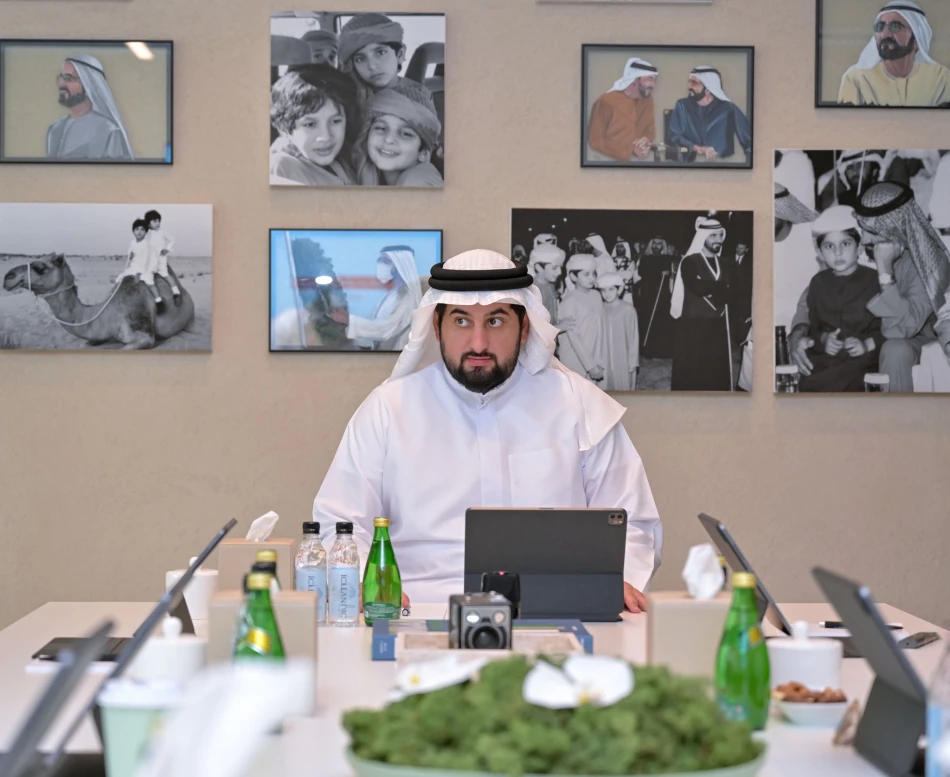
Visionary Leader: Mohammed bin Rashid Pioneers Global Humanitarian Initiatives Upholding Human Dignity and Sustainable Impact
UAE Solidifies Position as Global Humanitarian Powerhouse with Decades-Long Aid Leadership
The United Arab Emirates continues to leverage its strategic vision of humanitarian diplomacy, maintaining its position as the world's largest donor of humanitarian aid for multiple consecutive years. On World Humanitarian Day, senior Emirati leadership reinforced the nation's commitment to expanding global charitable initiatives, signaling that humanitarian aid remains a cornerstone of the UAE's soft power strategy and international influence.
Strategic Humanitarian Vision Drives Global Impact
Sheikh Ahmed bin Mohammed bin Rashid Al Maktoum, Second Deputy Ruler of Dubai and Supreme President of the Mohammed bin Rashid Al Maktoum Charitable and Humanitarian Foundation, emphasized that the UAE's humanitarian approach stems from fundamental principles aimed at achieving human welfare and promoting values of compassion, solidarity, and genuine brotherhood. This philosophy has positioned the Emirates as a global hub for humanitarian initiatives, reaching hundreds of millions of people worldwide over several decades.
The timing of these statements, coinciding with World Humanitarian Day on August 19, underscores the UAE's systematic approach to humanitarian diplomacy. Unlike ad-hoc charitable efforts, the Emirates has institutionalized its aid programs, creating sustainable frameworks that operate continuously across all regions of the world.
Institutional Framework Ensures Long-Term Impact
Mohammed bin Rashid Foundation's Expanding Reach
Abdullah Mohammed Al Basti, Secretary-General of Dubai's Executive Council and Chairman of the Board of Trustees of the Mohammed bin Rashid Al Maktoum Charitable and Humanitarian Foundation, highlighted the institutional nature of the UAE's humanitarian work. Since its establishment in 1997, the foundation has continuously developed projects and programs in vital sectors including healthcare, education, relief, and community empowerment.
This institutional approach differentiates the UAE from countries that rely primarily on government-to-government aid or temporary crisis responses. By creating permanent foundations with dedicated leadership and continuous operations, the Emirates has built a humanitarian infrastructure that can respond rapidly to emergencies while maintaining long-term development programs.
Geopolitical Implications of Humanitarian Leadership
Soft Power Strategy in Action
The UAE's humanitarian leadership serves multiple strategic objectives beyond altruistic goals. In an increasingly multipolar world, countries like the UAE, Singapore, and Qatar have demonstrated how smaller nations can achieve outsized global influence through targeted soft power initiatives. The Emirates' humanitarian programs create lasting relationships with recipient countries and communities, potentially translating into diplomatic support, trade partnerships, and regional influence.
This approach contrasts with traditional great power competition, where influence often stems from military capabilities or economic coercion. The UAE's model suggests that consistent, institutionalized humanitarian aid can be equally effective in building international partnerships and enhancing national prestige.
Regional Context and Competition
The UAE's humanitarian emphasis occurs within a broader regional context where Gulf nations increasingly compete for global influence through different mechanisms. While Saudi Arabia focuses on mega-projects and economic diversification, and Qatar leverages sports diplomacy and media influence, the UAE has carved out humanitarian aid as a distinctive pillar of its international strategy.
This specialization allows the Emirates to maintain positive relationships even with countries that might have political disagreements with other regional powers. Humanitarian aid, by its nature, transcends political boundaries and creates goodwill that can prove valuable in future diplomatic negotiations or crisis situations.
Sustainable Development Model
Beyond Emergency Response
The emphasis on sustainable impact and community empowerment reflects a sophisticated understanding of development economics. Rather than focusing solely on emergency relief, the UAE's humanitarian programs aim to build local capacity and create long-term stability. This approach aligns with international best practices in development aid and suggests that Emirati humanitarian efforts are designed to create lasting positive change rather than temporary relief.
The foundation's commitment to continuous expansion of its humanitarian umbrella indicates that the UAE views this sector as a growth area rather than a static commitment. This forward-looking approach suggests that humanitarian aid will remain a significant component of UAE foreign policy for the foreseeable future, potentially expanding in scope and geographic reach as the country's economic capabilities continue to grow.
Most Viewed News

 Sara Khaled
Sara Khaled






